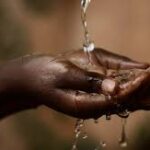Water, Sanitation & Hygiene in Africa: Health at Risk

Access to clean water, proper sanitation, and good hygiene—often referred to as WASH (Water, Sanitation, and Hygiene)—is essential for good health and human dignity. Yet, millions of Africans still lack these basic necessities. According to UNICEF, over 400 million people in sub-Saharan Africa do not have access to safe drinking water, while 700 million lack basic sanitation services. This gap contributes to preventable diseases, stunted child growth, and avoidable deaths. Improving WASH is not just a public health issue; it is a human rights and development priority.
The Health Impact of Poor WASH in Africa
-
Diarrheal Diseases – Contaminated water and poor sanitation are leading causes of diarrhea, which kills more than 200,000 African children under five each year.
-
Cholera Outbreaks – Frequent in many African countries, cholera spreads quickly where water is unsafe and sanitation infrastructure is weak.
-
Parasitic Infections – Worm infestations and schistosomiasis thrive where hygiene practices are poor and water sources are unsafe.
-
Malnutrition – Children suffering repeated infections from unsafe water and poor hygiene are more likely to be stunted and undernourished.
-
Maternal and Neonatal Risks – Lack of clean water in health facilities endangers mothers during childbirth and puts newborns at higher risk of infection.
Challenges Facing WASH in Africa
-
Rapid Urbanization: Growing cities often outpace infrastructure, leading to slums with poor sanitation.
-
Climate Change: Droughts and floods contaminate or deplete water sources.
-
Poverty: Families cannot always afford safe drinking water or proper sanitation facilities.
-
Weak Infrastructure: Rural and peri-urban areas often lack piped water, sewage systems, or safe toilets.
-
Cultural Barriers: In some communities, taboos and lack of education hinder the adoption of hygiene practices like handwashing.
Progress and Success Stories
Despite these challenges, there have been success stories across the continent:
-
Ethiopia: Community-led sanitation programs have significantly reduced open defecation.
-
Kenya: Investments in solar-powered water systems are providing sustainable access to clean water.
-
Rwanda: Nationwide handwashing campaigns during COVID-19 improved hygiene awareness.
-
South Africa: Some municipalities are using smart water management systems to detect leaks and ensure better distribution.
These examples show that progress is possible when communities, governments, and partners work together.
Solutions and Pathways Forward
-
Investment in Infrastructure
Governments must prioritize building and maintaining water supply systems, sewage networks, and rural sanitation facilities. -
Affordable Clean Water Access
Expanding community boreholes, rainwater harvesting systems, and water kiosks can make clean water more accessible and affordable. -
Promotion of Handwashing and Hygiene
Public health campaigns in schools and communities can build lifelong hygiene habits, reducing disease transmission. -
Leveraging Technology
Mobile apps and smart sensors can monitor water quality, detect contamination, and manage distribution. -
Community Involvement
Local ownership of water and sanitation projects ensures sustainability. Training community members in maintenance reduces system breakdowns. -
Partnerships and Funding
Collaboration between governments, NGOs, and international agencies is key to financing large-scale WASH projects.
The Economic and Social Benefits of WASH
Investing in WASH doesn’t just save lives—it also boosts economies. The World Health Organization estimates that every $1 invested in WASH yields $4 in economic returns through reduced healthcare costs, increased productivity, and improved school attendance. Children, especially girls, benefit the most when schools have clean toilets and water, as this encourages consistent attendance and reduces gender disparities.
Conclusion
Water, sanitation, and hygiene are the foundations of public health. While Africa still faces major challenges, progress is being made through innovative programs and community-led solutions. By expanding clean water access, improving sanitation infrastructure, and promoting hygiene practices, Africa can drastically reduce preventable diseases, improve child survival, and create healthier, more resilient communities.
A future where every African has access to clean water and safe sanitation is possible—but it requires sustained investment, political will, and collective action.
Written by Fawzi Rufai, Medically Reviewed by Sesan Kareem



